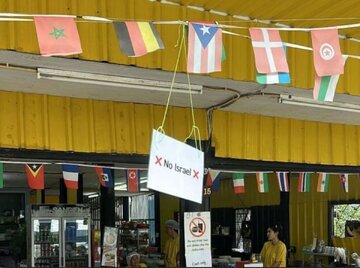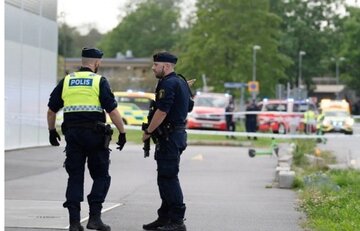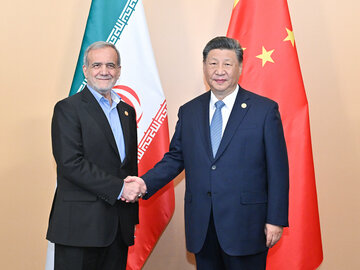(Ahlul Bayt News Agency) - A Rohingya Muslim died in a Bangladesh hospital on Sunday, police said, the second refugee fleeing violence in neighbouring Myanmar to do so after allegedly being shot by security forces.
Mohammad Tyeb, 20, died at a government clinic in Bangladesh's port city of Chittagong more than a week after he was shot in the head, police officer Nasir Uddin told the media.
Uddin said the man told Bangladesh authorities that he was shot by security forces on June 8 in Maungdaw, a small Myanmar city close to the border with Bangladesh. "He later went into a coma and never regained consciousness," the police officer said.
At least 50 muslims have martyred in western Myanmar's Rakhine state in more than a week of sectarian violence and revenge attacks between Buddhists and Muslim Rohingya.
Tyeb is the second Rohingya from Myanmar to die in Bangladesh after escaping the violence. A 50-year-old named Kala Hossain died at the same hospital after being shot by Myanmar forces, said Uddin. Senior doctor M Kamaluddin said Sunday: "Tyeb died at 7:40am this morning as a bullet was stuck in his head. He suffered severe brain injury. We could not operate his head as it was risky."
Uddin said two more Rohingya – both shot – were also being treated at the Chittagong hospital. All four slipped into Bangladesh territory by dodging tight border patrols.
Bangladesh is coming under increasing international pressure to open its border to Rohingya, but has so far refused to do so.
Rohingya are described by the United Nations as one of the world's most persecuted minorities.
On the Water
At first, the boat bobbing in the water in the middle of the night appeared to be empty. But when Bangladeshi villagers took a closer look, they found a baby too weak to cry, a refugee from marauding mobs in Myanmar apparently abandoned by her family.
The cleft-lipped infant, just weeks old, is among hundreds of Rohingya Muslims who fled this month's sectarian violence in Myanmar's western state of Rakhine, packing themselves into rough wooden boats and heading for the shores of neighboring Bangladesh.
No one knows how many made it ashore. Bangladesh has ordered its border guards to push the boats back, determined that - with at least quarter of a million "illegal migrants" already here - there must be no more.
The baby, named Fatima by the family that has taken her in, is out of the danger that she and her family faced in Myanmar, but she joins a throng of stateless people in southeast Bangladesh who - for the most part - lead desperate lives of squalor, deprivation and discrimination.
Among them is Mohammad Kamal, a young religious leader from Rakhine's Maungdaw district, where ferocious violence erupted on June 9 between Rohingyas and ethnic Rakhine Buddhists and spread across the state. He escaped to Bangladesh in 2006 after his brother and others were jailed in a crackdown on Muslim clerics.
Kamal, now 28, settled in a makeshift "unregistered" camp, where - along with some 20,000 others - he is not recognized as a refugee and where even international aid agencies have to work under the radar because Bangladesh has not granted them legal status.
"I went out for a walk one day last year and was arrested because I had no documents," said Kamal, pulling up a trouser leg to show a line of angry sores that broke out during the following nine months he spent in jail.
Suu Kyi ( Nobel Peace Prize oner) acknowledged that recent violence between Rakhine Buddhists and stateless Muslim Rohingyas in the north-western Rakhine region was a test of Burma’s transformation but she blamed lawlessness for the escalation.
Thousands of displaced Muslim Rohingyas were in need of food, water and shelter in northwestern Myanmar on Thursday after fleeing the country's worst sectarian clashes in years.
Hundreds ofMuslims fleeing sectarian violence in Myanmar tried to enter Bangladesh , but many were turned away by the authorities.
Bangladesh has reinforced its border with Myanmar, amassing border guards and coast guards who were keeping watch on the River Naf, where rickety fishing boats were filled with Rohingyas, ethnic Muslims from Myanmar’s Rakhine State.
Bangladeshi Foreign Minister Dipu Moni on Wednesday said her country was not willing to give shelter to Rohingya refugees, despite international calls for opening the border to people fleeing the clashes between Muslims and Buddhists in western Myanmar.
/smh_




